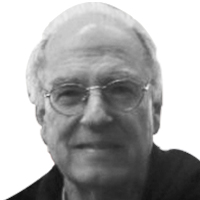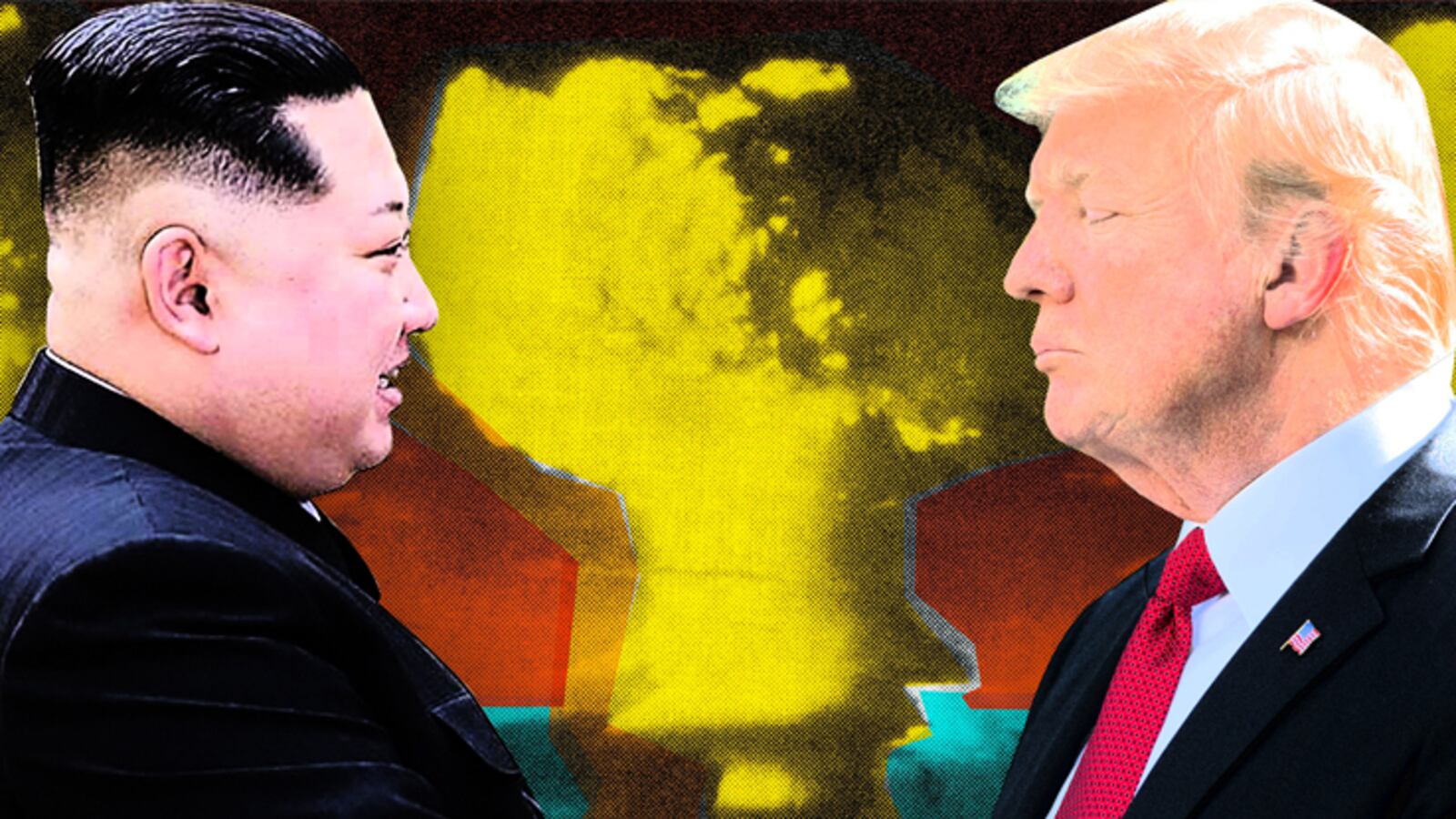SEOUL—They both can claim to have forced the other—Donald Trump by pressing sanctions on North Korea, Kim Jong Un by scaring the Americans into thinking he might actually fire a nuclear-tipped missile at the U.S.
In the end, though, the proof will be in the talking, and nobody knows whether they’ll solve anything when they meet “by May,” as the White House confirmed, for a summit that may be the last chance for peace and real reconciliation on the Korean Peninsula.
This may look like “a 180-degree turnaround,” said Kim Sung-bak, Hanyang University researcher and author of a major academic study on North Korea, but “now the danger looms larger than ever. If the summit fails, there’s no option but to go on a collision course.”
And for now, Secretary of State Rex Tillerson is billing the summit as “talks” not negotiations. The diplospeak grew still more abstruse when a State Department official denied “negotiations were going on,” but said, instead, “We’re talking about… an invitation by the leader of North Korea to meet face to face with the president of the United States.”
Here in Seoul, the immediate sensation of the news of the summit far eclipsed reminders that success may be as elusive now as it was in a succession of efforts over the years to come to terms with North Korea on its nuclear program, including two summits between South Korean presidents and Kim’s father, Kim Jong Il, who died in 2011.
In the excitement, South Korean conservatives, the dominant voice here until the Candlelight Revolution of more than a year ago, appeared almost to have lost their voice. The Liberty Korea Party, as the main conservative grouping now calls itself, has yet to decide what to say after the rapid series of events that began with Kim Jong Un sending a team to join South Korean athletes at the Pyeongchang Winter Olympics, all marching under the one-Korea flag.
“I think they will suffer some headaches,” said Ha Tae-kyung, a national assembly member who left the Liberty Party to join a more centrist grouping. “Trump has disappointed them.”
The difference this time is that Trump has far outdone any of his predecessors in repeatedly expressing his eagerness to meet the North Korean leader, much to the chagrin of Korean rightists who often carry American as well as South Korean flags at protests. Trump has been saying ever since his campaign that he and Kim ought to get together for “a hamburger” if conditions were right.
That seemed to go by the board during months of traded insults between “dotard” and “rocket man,” and threats of “fire and fury.” Some South Korean conservatives said they were actually hoping Trump might carry out the “military option” against the North’s nuclear and missile facilities. But, now, to their consternation, it looks like we’re back to burgers.
Choi Jin-wook, former president of the Korea Institute of National Unification, notes as a twist of history that South Korea is “playing the role of broker between North Korea and the U.S.”
South Korea’s national security adviser, Chung Eui-yong, after dining with Kim Jong Un on Monday in Pyongyang, had flown to Washington bearing a letter from Kim to Trump inviting him to a meeting. But what was really in that letter, Choi asked, that led Trump to accept?
“We don’t know what North Korea said to Trump or why Trump accepted,” said Choi. “There are a lot of details.”
It’s those details that U.S. diplomats say will have to be sorted out. Sure, U.S. and South Korean troops will go ahead with their annual war games before President Moon Jae-in meets Kim Jong-un later next month for what will now be simply a preliminary meeting before the main event, the Trump-Kim summit. Sure, the sanctions will remain in place before Trump and Kim sit down together, but how much is Kim willing to concede to get out of them?.
“There could be some progress about denuclearization, maybe U.S. and North Korea normalization of relations,” said Ha Tae-kyung, , “but I’m not sure North Korea will give up his nuclear assets.”
In fact, if there’s anything no one expects Kim to be willing to sacrifice, it’s the nuclear program that his grandfather, the dynasty founder Kim Il-sung, initiated during his long reign. His father, Kim Jong-il, perpetuated it after the breakdown of the Geneva framework agreement of 1994 with the U.S., under which North Korea had agreed to halt the program.
The widespread assumption here is that Kim will want to foster dialogue while going on with research and development on warheads and the long-range missile needed to carry them to distant targets even if he foreswears more missile tests or a seventh underground nuclear test.
Another major question: whether Kim will want to talk about a peace treaty with the U.S. under which the U.S. agrees its 28,500 troops from South Korea. ”If North Korea demands a treaty, that means they will never give up their nuclear weapons,” said Kim Tae-woo, formerly with the Korea Institute for Defense Analyses. “The U.S. and South Korea cannot accommodate that demand.
It’s right there, Kim Sung-bak of Hanyang University predicted, that talks between Trump and Kim could go awry. “North Korea has a couple dozen nuclear warheads,” he said. “They want many more.”
On the way to achieving that goal, it’s assumed Kim’s highest priority is relief from sanctions that are increasingly onerous. “Whatever deal is struck will not be delivered on,” said Kim Sung-bak. “They will never agree to verification or inspections. North Korea doesn’t trust the U.S. any more than the U.S. trusts North Korea.”






